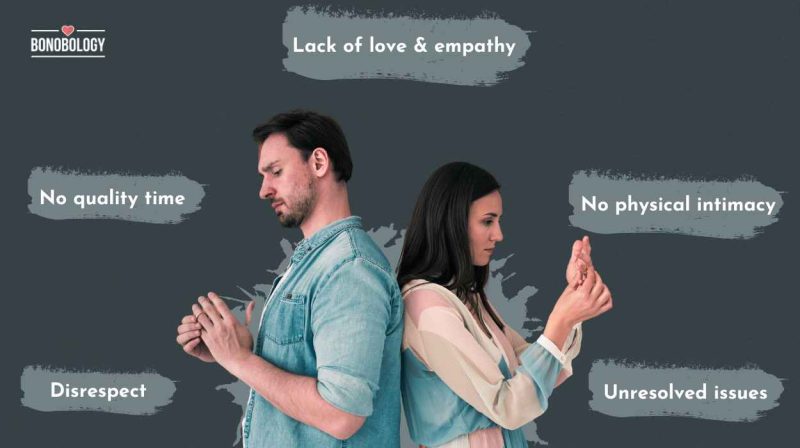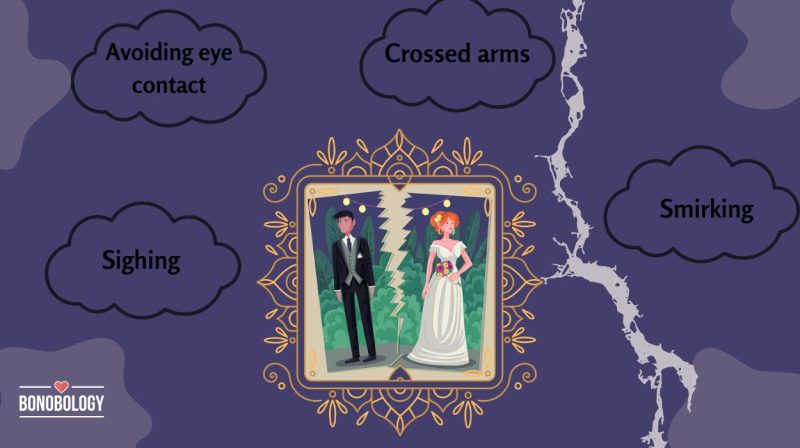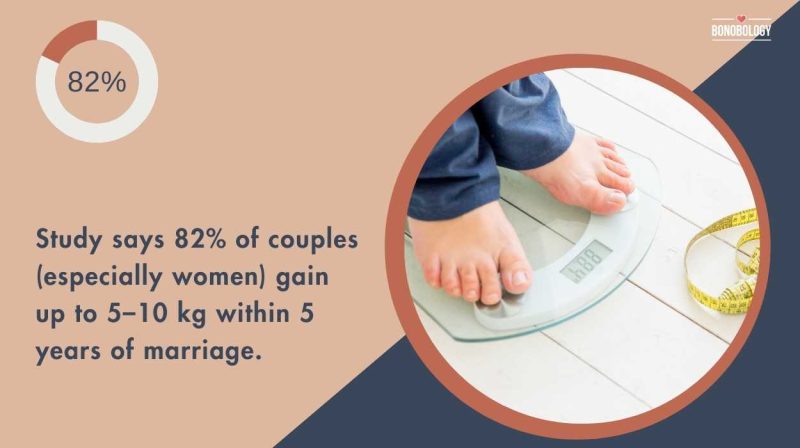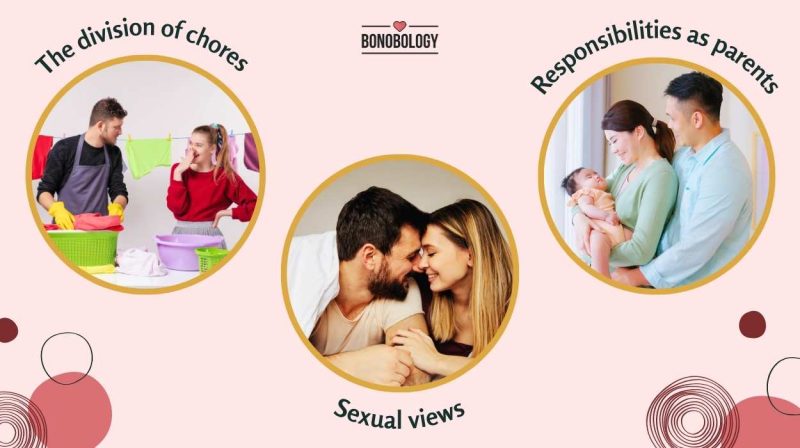Let’s get this out of the way: a prenup does not mean a lack of trust in your relationship. A prenuptial agreement is a legal and practical way of dealing with issues that may arise if you decide to end your marriage in the future. Sure, nobody likes to think of such a grim reality, but you also wouldn’t want to be left pulling your hair out if such a day does come.
When push comes to shove, the benefits of a prenup can definitely outweigh the negatives, but that doesn’t necessarily mean there aren’t any cons to it. Plus, it’s definitely one of the more difficult conversations you’ll have with your partner.
If your partner and you are considering getting a prenup done, then this article will definitely help you both make a wise decision. Let’s take a look at the prenuptial agreements’ pros and cons, with the help of experienced lawyer Tahini Bhushan, who specializes in gender violence and sexual harassment cases.
Understanding Prenuptial Agreements: Why Get A Prenuptial Agreement?
Table of Contents
Prenuptial agreements or prenups simply mean agreements in which the parties who are planning to tie the knot decide to disclose their respective assets and share a vision of how to handle financial matters throughout their married life.
In addition, matters related to inheritance, business, debts, etc. are also covered by prenups, which make them very useful and important in today’s world. By signing a prenup, you can set up a plan of how the finances, alimony, maintenance and the division of wealth will take place if your marriage ends in a divorce.
“Prenups are basically contracts which any couple can enter into before they get married. It’s contingent upon the possibility of a divorce and can dictate what happens. How do they split the property, how they’re going to split the wealth they have accumulated, so on and so forth,” says Tahini, talking about the benefits of a prenuptial agreement.
“In the unfortunate incident of a divorce, the law dictates that they’ll have to pay maintenance, alimony, compensation, which is all expensive if you don’t have a prenup. In most cases where the parties have already created a certain net worth, they’re mostly willing to get such a contract,” she adds.
Even so, the answer to the question, “who should get a prenuptial agreement?” doesn’t exclusively yield an answer covering people who have a considerable net worth. Now that you know exactly what it is, let’s take a look at prenuptial pros and cons. Yes, there’s more here than meets the eye, and no, it doesn’t all revolve around that awkward first conversation.
Related Reading: 5 Alternatives To Divorce To Consider Before You Call It Quits
12 Pros And Cons Of Prenups That Should Be Considered
Although prenups have become commonplace among young couples these days, there are still some who are very hesitant when it comes to actually discussing and signing one. “In my opinion, I would prefer that there is always a prenup in place regardless of the net worth of the parties, simply because it makes life a lot easier,” says Tahini.
Let’s take a look at how exactly the benefits of a prenup can do exactly that (make life easier) and also discuss the much-less talked about cons that might follow too. Listed out for you are the 12 pros and cons of prenups so that your partner and you can take a well-informed decision.
1. Discussion of financial matters
Financial conflicts in a marriage are more common than we think. Money matters can actually break a relationship and a family. In fact, a study claims that how one spouse handles money is the third-largest reason for divorce.
Pros: Prenups give both of you an opportunity to discuss financial matters in a frank and straightforward manner, so that you both get to know what to expect from married life, in terms of finances. Plus, when you’re worried somebody is only marrying for the money, a prenup should take care of it.
Cons: A discussion about financial matters might lead to misunderstandings between your partner and you. In fact, such problems might be very difficult to solve. Not every couple is able to negotiate about finances clearly and achieve success in signing a prenup.
2. Impact on the relationship
Not everyone may agree to the idea of a prenup having a positive influence on a relationship. It is quite a subjective view. It’s entirely possible that it may have a long-lasting impact on the relationship once such a topic has been brought up.
Pros: Even though the consensus is that a conversation about prenups is bound to turn awkward, it can often be a lot more productive than that. You both get to know each other’s views on money matters and are able to trust each other more.
“Sure, it can be awkward, but I think many couples are now bold enough to have that conversation. They’re smart enough to understand that marriages aren’t exactly like diamonds. They’re now happier to have that conversation, especially those who have a good amount of net worth,” says Tahini, speaking on the prenup pros and cons.
Cons: On the other hand, a prenup might damage your relationship if your partner is not willing to sign it and thinks that you do not trust him/her completely. “Oh, you want me to sign a prenup? Do you have trust issues with me?” — just might be a few things you’ll get to hear. While the benefits of a prenuptial agreement are clearly financial, the negatives can be emotionally draining.

3. Maintenance of your children’s finances
Prenups do prepare you for the unfortunate things that may happen in life. Depending on what has been established in the prenup you made, the financial aid to your children will be decided as well. However, the biggest factor here is what is decided before the partners were even married.
Pros: With the help of a prenup, you can ensure that in the event of a divorce or death, your children (whether from a previous marriage or current marriage) can get their share of finances legally and rightfully without any hassle.
Cons: “In some cases, children might suffer because of a prenup. Say you have two children, and they’re used to a certain lifestyle. After the divorce, if the prenup doesn’t allow for the children to achieve that lifestyle, they’ll suffer because of it,” says Tahini, talking about how establishing prenups long before ever having children may have a negative impact on their lives after a divorce governed by a prenup.
Related Reading: Gray Divorce 101 – A Guide To Divorce After A Long Marriage
4. Conflict related to divorce
Divorce is never easy and smooth, prenup or no prenup. Even so, it’s no surprise that things can definitely be a lot more amiable when a prenup is in place.
Pros: Since prenups are legal agreements, obviously, many of the clauses and issues will be discussed and negotiated with clarity. Thus, even if a conflict arises during the time of the divorce, the prenup you have signed will reduce the conflict accordingly, because everything will be mentioned in it.
“It takes the burden off the court, they don’t have to undergo all that litigation when the parties are dragging each other down. Divorce counseling might even take place and there’s a good chance the whole process becomes a lot easier,” says Tahini.
Cons: During the time of divorce, along with the other matters, the prenup itself might become a source of conflict and might get on your nerves. The reason behind this is simple: prenups are not always efficiently designed or ironclad. There might be loopholes that might create trouble for you at the time of divorce.
5. Protection of business
When colleagues or partners decide to tie the knot, their vested interests must be taken care of in some way.
Pros: One of the biggest aspects of “prenuptial agreements pros and cons” is the oft-debated protection of business it offers. “When a person develops a business before getting married, by investing their blood, sweat and tears into it, they’d naturally want to protect it. Moreover, say the business does extremely well after the marriage, if there is no prenup in place, a partner can literally walk away with half of it in a divorce,” says Tahini.
Cons: If your partner owns the business and you have a financial interest in it and have contributed to its success, then you might actually not get your fair share from that business after the divorce because of the prenup. “In cases where, say, somebody joins in the business and starts working, it can get difficult to figure out the distribution of wealth when it comes to the business. Litigation can then happen on that front as well, where a prenup is then challenged,” says Tahini.
6. Lifestyle pattern
There are no surprises, no hidden treasures and no huge debts that you are not aware of. When discussing a prenup, you end up talking about things couples should discuss before getting married.
Pros: By signing a prenuptial agreement, you will both be able to decide how to spend your finances and will be able to come up with an appropriate plan to maintain a particular lifestyle after marriage.
Cons: In the case of separation, you might not be able to maintain your earlier lifestyle, because you will either have to support your ex or have to receive support from your ex. Under either of the two circumstances, obviously, your funds will be limited and your lifestyle will have to be adjusted accordingly.

7. Cost associated with divorce
Divorces are always expensive, no matter which side you are on.
Pros: Prenuptial agreements cover details such as how divorces will be handled and how lawyer fees will be handled. So, once you sign a prenup, you do not have to worry about these issues if you decide to get divorced in the future. Costly litigation can be swiftly avoided by you because of the signed prenup. That in itself answers the all-too-common “why get a prenuptial agreement?” question.
Cons: However, most of the time, the prenup itself is challenged at the time of divorce, which does not reduce, but actually increases the cost associated with divorce.
8. Professional guidance in planning finances
We all could do with a little professional help, especially when it comes to your marriage – be it marriage counseling or getting a lawyer for a prenup.
Pros: For creating a prenuptial agreement, you will obviously have to enlist the help of an experienced and professional lawyer who specializes in prenups and other legal and financial matters. This means you will get the guidance of an expert in planning your finances and other legal issues.
Cons: Hiring a professional lawyer to create a prenup and guide you in an appropriate manner will require lots of money. You will have to be ready to spend enough money on a prenup lawyer while also managing the finances being spent on your wedding.
Related Reading: Divorce And Social Media: How To Handle The Volatile Mix
9. Debts and loans
No one wants to get into a marital relationship to pay off the debts of the partner. Perhaps the answer to the question, “who should get a prenup?” is definitely the couples who are going through their own, individual financial troubles.
Pros: Prenups tend to include provisions regarding debts and loans, which means you will not be liable to pay back the debts your spouse might have accumulated before marriage.
Cons: If the prenup is challenged or any loophole is found in the court of law in relation to the clause related to debts and loans, then you will probably have to share the liability of your partner.
10. Future decisions
There is a legal binding to your entire future life together. Nothing is spontaneous or sudden, so to say. Hence, in some situations, it may end up influencing your decisions.
Pros: Prenups generally prove to be a guiding light for couples who are going to kick-start their married lives. Through the negotiations related to the prenups, the couples are able to decide the future course of their lives after marriage, and thus the prenups turn out to be useful.
“If the couple knows that a clause for infidelity in the marriage exists in the prenup, which calls for higher compensation should the marriage end by divorce, they may practice a bit more restraint. Of course, it might not restrain them completely, but it will definitely add a layer of apprehension,” says Tahini.
Cons: On the other hand, prenups do not actually help anticipate the future precisely because an issue that seems small to the couple in the beginning usually turns out to be monumental in the future. Therefore, the couple fails to make future decisions wisely.

11. Rationality in the relationship
The must for a happy, lasting, content relationship.
Pros: By getting a prenup done, you both decide to rationally communicate with each other and create a path for a sustainable and prosperous future together. You do not let emotions take control of your thoughts and your rationality becomes the basis of your relationship.
Cons: Even though it seems that couples rationally sign prenups, it has been seen that most couples sign prenups because they are madly in love with each other and do not want anything to come in between. Thus, they sign the prenup without much thought and regret it later on.
“Many times, the other side does get cheated upon. Say they don’t know about certain properties when you are in that ‘love is blind’ phase, you might get cheated into signing a prenup since you had no idea of the partner’s other finances. Later, a person may realize there’s more than what meets the eye and will obviously feel deprived,” says Tahini, talking about prenuptial agreements pros and cons.
Related Reading: 12 Co-Parenting Rules For Divorced Couples
12. Privacy and control
Keeping things to yourself is not difficult when you have a prenup in place.
Pros: Through the prenup, you are able to make sure that your privacy in your married life in terms of finances and assets, is respected. You will get the opportunity to use your finances and assets according to your wishes during the marriage and even after a divorce. Plus, you might figure out how to split finances in a marriage.
Cons: A prenup may give the illusion of privacy and control, but ultimately when the prenup is discussed in the court of law during the divorce, that illusion is shattered. The court of law might invalidate clauses in the prenup and might not uphold the privacy and control that you enjoyed. The decision to sign or not sign a prenup depends on your partner and you entirely.
So you both need to discuss a prenup honestly and quite early in the relationship, and opt for it only if you both think it is absolutely necessary. You must both approach separate lawyers for drafting prenups so that the concern of both parties can be promptly handled. Remember that a prenup eventually means to be prepared for the worst-case scenario and it can never go wrong if planned out wisely and effectively.
Now that you’re more aware of the prenup pros and cons, hopefully, you and your partner will be able to make a better decision about what will be good for you. By now, it should be pretty apparent that a need for such a contract doesn’t stem from doubt about the relationship, but because it’s the practical and logical thing to do.
FAQs
There are multiple reasons why a prenup can be found invalid, including when there isn’t a written contract or if it is not executed properly, if the information was deceitful, or if a party was coerced into signing it.
Yes, prenuptial agreements are regularly challenged. The challenging party will successfully need to prove that it is invalid and might include evidence that they were coerced into signing it.
Though it may seem like a conversation about prenups is going to instill trust issues, that often isn’t the case. Prenups are usually good for marriages and might just be the logical thing to do when you both want to protect your finances and assets.
Life After Divorce – 15 Ways To Build It From Scratch And Start Afresh
Your contribution does not constitute a charitable donation. It will allow Bonobology to continue bringing you new and up-to-date information in our pursuit of helping anyone in the world to learn how to do anything.






















Featured
21 Subtle Signs Your Marriage Is In Trouble
What Marriage Means To A Woman – 9 Possible Interpretations
Body Language Of Unhappy Married Couples — 15 Cues Your Marriage Is Not Working
15 Sure Signs Your Husband Has A Crush On Another Woman
13 Amazing Benefits Of Marriage For A Woman
11 Harsh Truths About Marriage No One Talks About
15 Types Of Birth Control Measures Used By Our Grandparents
Wedding Planning Tips And Ideas For The Perfect Wedding
20 Fun Things To Do As A Couple
Miserable Husband Syndrome – Top Signs And Tips To Cope
Modern Wedding Suits For Groom – 25 Ideas
17 Signs Your Wife Wants To Leave You
Healthy Family Dynamics — Understanding The Types And Roles
Marriage, Madness And Murder: The Betty Broderick Story
10 Bankable Reasons For Getting Married
7 Expert Backed Ways To Help A Depressed Wife
Her Life Was Ravaged By A Marriage Crisis
Things To Discuss Before Marriage With Your Prospective Life Partner
12 Reasons Why Women Gain Weight After Marriage
5 Conversations To Have Before Marriage To Avoid Complications Later